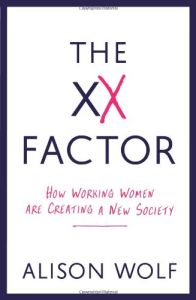Melden Sie sich bei getAbstract an, um die Zusammenfassung zu erhalten.

Melden Sie sich bei getAbstract an, um die Zusammenfassung zu erhalten.
Alison Wolf
The XX Factor
How Working Women Are Creating a New Society
Profile Books, 2013
Was ist drin?
How are 70 million working women changing global society?
Recommendation
Though society is still working to achieve gender equality, women make up a significant portion of the workforce and hold elite positions in organizations worldwide. Alison Wolf presents studies and statistics on how women’s decisions to work or not to work affect everyone. Wolf’s comprehensive book includes snapshots of society in North America, Europe and Asia. She also describes coffee shop discussions among her female friends and colleagues about their working lives. Her research uncovers the interesting and surprising consequences of the growing female workforce. Although Wolf shoehorns in some ideas, she proves to be an engaging writer. getAbstract especially recommends her treatise to young professional women and to all women deciding whether to work, raise a family or try to do both.
Summary
About the Author
Alison Wolf is the Sir Roy Griffiths Professor of Public Sector Management at Kings College London and director of its international center for university policy research.





















Comment on this summary